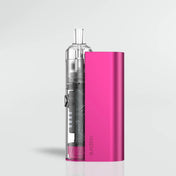The crude form of nicotine was first known to scientists around 1571 - since then, its effect on the human brain and body has been extensively studied - yet the impact on physical performance, particularly endurance, oxygen intake, and lung capacity, remains a focus of health experts.
Today, vaping is banned in professional sports stadiums across the UK - if you are attending as a supporter. Do the same rules apply if you are competing as a professional athlete?
At EDGE Vaping, we have analysed physiological studies of vaping and nicotine and their effect on the human body from a cardiovascular perspective. Such studies help understand the impact that vaping, and previously, cigarettes, has on endurance performance, to understand the stance of professional sporting bodies towards it.
Physical aspects of nicotine
When ingesting nicotine, it is absorbed and distributed around the body through the bloodstream. While race, gender and age all change the rate and impact of nicotine absorption, the effects remain broadly identical.
Once nicotine is absorbed, it is likely to increase blood pressure and heart rate. High blood pressure is typically linked with strength-oriented athletes, but an increased heart rate theoretically improves the ability for oxygen to be distributed where it is needed. However, nicotine narrows the arteries, restricting blood flow, meaning that increased demand through athletic performance could lead to a lack of supply.
Nicotine has also been shown to have diuretic qualities, meaning that someone vaping is more likely to be dehydrated while using it. Such qualities are especially undesirable during physical exertion; when the body has an increased need for hydration, taking diuretics may lead to depletion at a much faster rate, thus decreasing the possible performance of an athlete.
Do athletes smoke cigarettes?
Historically, the popular method of ingesting nicotine has been smoking cigarettes. Professional sports athletes throughout the decades have been seen smoking; footballer Wayne Rooney, cycling hero Eddy Merckx and basketball player Michael Jordan, to name a few, have all famously consumed nicotine while at the height of their respective careers.
However, modern-day sports health experts all agree on the negative effects of smoking; there is a lessened delivery of oxygen to the heart, lungs and muscles. Furthermore, cigarettes can cause inflammation in the bones and joints, which may contribute to conditions such as osteoporosis.
As such, the homogenous ban on cigarettes in top-level sporting associations has encroached on vaping. The question remains however - is vaping banned in professional sports?
Can athletes in the UK vape?
There is currently no regulation that stops athletes from ingesting nicotine - whether this is through vaping, cigarettes, nicotine patches, gums, or any other method.
Therefore, as a professional sports athlete, you may choose to vape - with the knowledge that health experts discourage the intake of nicotine with performance sports.
Nevertheless, the impact of vaping is effectively limited to the effect of nicotine on the body, whilst ingesting nicotine through cigarettes invites a much greater risk of cardiovascular issues - not to mention the subsequent carcinogenic effects that will undoubtedly impair your physical performance. If you want to learn more about how vaping could impact your workout, check out our blog Can I Vape After a Workout?.
EDGE Vaping has long provided research-backed information and guidance around vaping, nicotine, and smoking, helping countless individuals make the switch from smoking. For more information on vaping, explore our EDGE News Hub.



